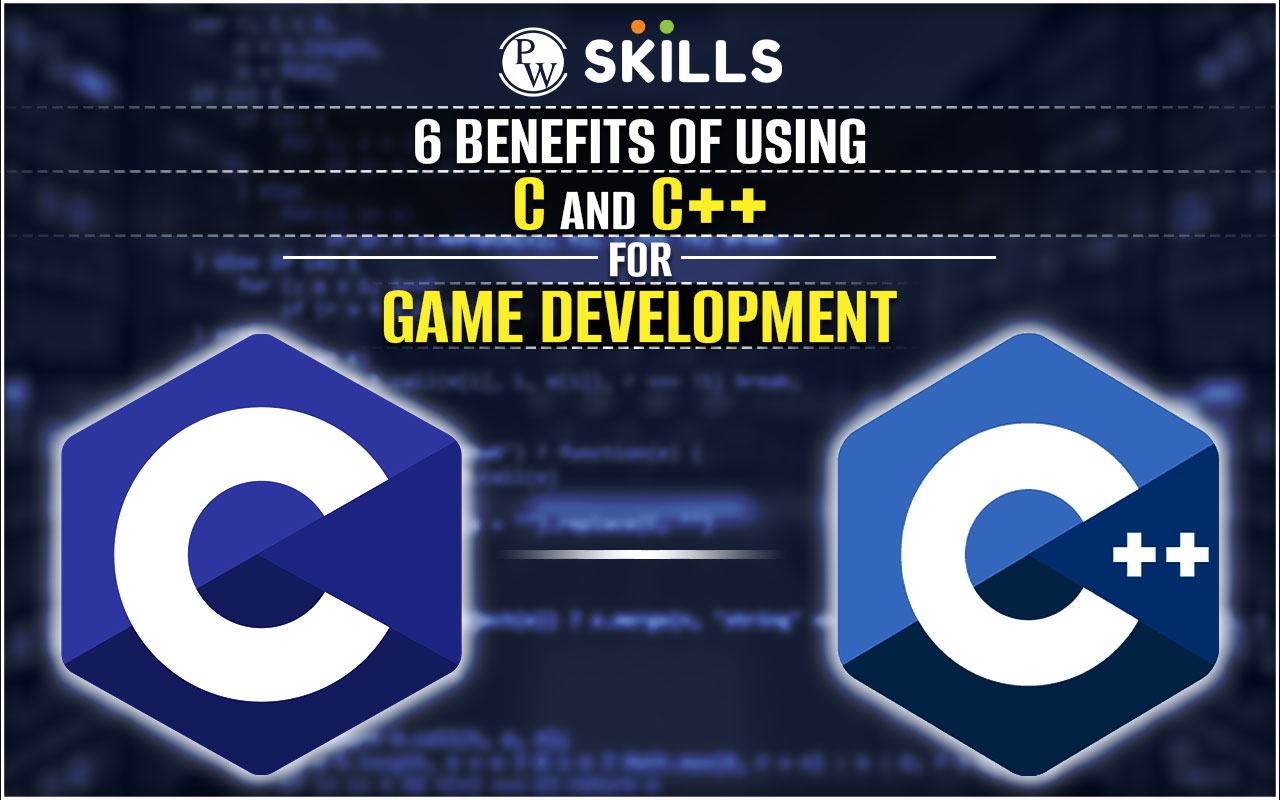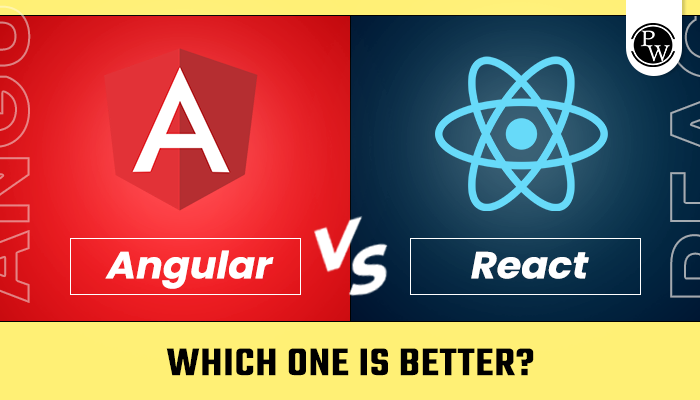C++ for game development stands out for its exceptional memory management, offering developers increased control, flexibility, and access to gaming resources.
C++ for Game Development: C++ holds significant prominence as a robust and extensively utilized programming language in the realm of game development, empowering developers to craft intricate and high-performance games. Unreal Engine and Unity stand out as leading choices for game engines, providing a rich array of tools and features to transform creative game concepts into reality.
This article delves into the realm of C++ for game development, specifically using Unreal Engine and Unity, covering aspects ranging from initial development environment setup to the implementation of gameplay mechanics, performance optimization, and the final stages of publishing and distributing your C++ game.
Whether a novice or a seasoned developer, this guide is a valuable companion for your C++ for game development journey with Unreal Engine and Unity. C++ with DSA Course by Physics Wallah is an ideal choice for people who want to step into game development. Here is the perk: use “READER” coupon code when enrolling for PW course, as a result you will get instant discounts!
What is C++?
C++ is one of the most adaptable and flexible high-level programming languages. Bjarne Stroustrup initially crafted it during his tenure at Bell Labs in the United States. Stroustrup intended to extend the capabilities of the C programming language, opting for a new, object-oriented approach over the procedural one.
Widely embraced by programmers and software developers, C++ has earned the ‘Swiss pocket knife’ moniker in coding languages. Its versatility shines, especially in the realm of building graphical applications. Positioned as a cross-platform, general-purpose language, C++ finds applications in various projects, ranging from crafting web browsers to developing sophisticated cloud storage systems.
C++ is a compiled programming language that allows users to write code and organize data comprehensibly. Once the code is written, the compiler or coding platform translates it into a language easily understandable by the computer.
This compilation process contributes to the swiftness of C++, making it a language known for its speed, a key advantage appreciated by programmers.
Also read: Who And When C++ Developed By?
Advantages and Disadvantages of C++
Here are the advantages and disadvantages of C++:
| Advantages and Disadvantages of C++ | ||
| Sr. No. | Advantages of C++ | Disadvantages of C++ |
| 1. | Powerful and Efficient: C++ allows low-level manipulation of memory, providing high performance. | Complexity: C++ is considered complex and can be challenging for beginners. |
| 2. | Object-Oriented Programming: Supports OOP principles, aiding in code organization and reusability. | Steeper Learning Curve: Requires a comprehensive understanding of memory management, pointers, and syntax. |
| 3. | Versatility: Suitable for various applications, from systems programming to game development. | Absence of Garbage Collection: Developers need to manually manage memory, increasing the risk of memory leaks. |
| 4. | Standard Template Library (STL): Rich set of libraries for data structures, algorithms, and utilities. | Platform Dependency: Code written in C++ may not be entirely portable across different platforms. |
| 5. | High Performance: Compiled language with efficient code execution, ideal for resource-intensive tasks. | Absence of Reflection: C++ does not provide built-in reflection capabilities, limiting runtime introspection. |
What is C for Game Development?
C is a viable choice for game development due to its speed and portability. It’s used in creating game engines such as Blend4Web, GoldSrc, ORX, Build Engine, Qfusion, and M.U.G.E.N. While C offers high performance, it’s lower-level compared to engines like Unity, making it suitable for those who prefer manual control. Beginners can start game programming in C, as demonstrated by two-player games where players are assigned O and X. C’s history dates back to 1972, designed by Dennis Ritchie, and it remains relevant in game development due to its efficiency.
Recommended Technical Course
- Full Stack Web Development Course
- Generative AI Course
- DSA C++ Course
- Java+DSA 1.0 Course
- Data Analytics Course
- Data Science with ML 1.0 Course
6 Benefits of Using C and C++ for Game Development
C and C++ have emerged as a go-to programming language for game development, offering many benefits to its widespread adoption in the gaming industry. Here are some key advantages of using C++ for game development:
1) Efficient Memory Management:
C and C++ excel in memory management, offering developers unparalleled control, flexibility, and optimization of gaming resources. In resource-intensive game development, efficient memory usage is crucial for maintaining smooth performance, making C++ an ideal choice.
2) Compatibility with Gaming Engines:
C++ is compatible with popular gaming engines such as Unity and Unreal. This compatibility allows game developers to seamlessly integrate their C++ code with these engines, leveraging their advanced features and streamlining the development process.
3) Adaptability to Modern Gaming Requirements:
The frequent development updates of C and C++ ensure that the language remains aligned with the evolving demands of modern gaming. Game developers can take advantage of the latest features and enhancements to enhance the functionality and performance of their games.
4) Low-Level Interaction with Hardware:
C and C++’s compatibility with low-level C and assembly language facilitates direct interaction with hardware-level components. This is crucial for game developers seeking to optimize their games for specific platforms and harness the full potential of hardware resources.
5) Compiled Language for Superior Performance:
Being a compiled language, C and C++ offer superior runtime performance compared to high-level interpreted languages. This advantage is vital in game development, where responsiveness and smooth execution are paramount for delivering an immersive gaming experience.
6) Abundance of Libraries:
C and C++ boast many libraries that specifically support game development. These libraries provide ready-made solutions for everyday challenges, enabling developers to expedite the coding process and focus on crafting high-performing and feature-rich games.
Game Development in C++ for Beginners
Here’s a step-by-step guide to help get started with game development in C++ for beginners:
- Step 1: Familiarize yourself with core concepts such as variables, data types, loops, and functions. Numerous online resources, tutorials, and courses like Physics Wallah’s C++ with DSA Course are tailored for C++ beginners.
- Step 2: Get acquainted with popular C++ game development libraries that simplify coding. Libraries like SDL (Simple DirectMedia Layer) and SFML (Simple and Fast Multimedia Library) provide essential tools for handling graphics, input, and sound.
- Step 3: Selecting a game development framework can streamline the development process. Start with a framework that aligns with your project’s scope and complexity.
- Step 4: Install the necessary tools and software for C++ game development. Configure your integrated development environment (IDE) to work seamlessly with C++.
- Step 5: Begin your practical journey by developing simple console-based games. This helps you grasp fundamental programming concepts in a gaming context. As you progress, you can gradually transition to graphical games.
- Step 6: Delve into graphics programming to enhance your games visually. Learn concepts such as rendering, shaders, and 2D/3D graphics. SDL and SFML, as mentioned earlier, can be valuable for implementing graphics in C++ games.
- Step 7: Gain insights into game design principles to create engaging and immersive experiences. Understand concepts like game mechanics, level design, and user experience. Books and online courses on game design can provide valuable knowledge.
- Step 8: Connect with fellow game developers in online communities and forums. Platforms like GitHub, Stack Overflow, and game development forums offer a wealth of knowledge and a supportive environment for beginners.
- Step 9: Showcase your projects in a portfolio to demonstrate your skills and creativity to potential employers or collaborators. A well-documented portfolio can significantly enhance your chances in the game development field.
Also read: What Is C: Differences vs C++, Advantages and Disadvantages
Comparing C++ for Game Development with Other Languages
C++ serves as a versatile player in the realm of game development, coexisting with various programming languages. Recognizing the nuances between these languages is crucial for meeting specific gaming requirements, considering the variations in flexibility and optimization they offer. Below is a comparative overview of C++ with other languages commonly employed in game development:
1) C++ vs. C#
Both C++ and C# belong to the C language family, sharing fundamental traits but differing in crucial aspects.
Similarities:
- Object-oriented programming (OOP) structures allow knowledge transfer between the two.
- Utilization of a compiler for direct code compilation, enhancing game efficiency.
Differences:
- C++ efficiently handles low-level C and assembly languages, resulting in faster game development.
- Manual memory allocation capabilities in C++ provide developers greater programming freedom. In contrast, C# incorporates a garbage collector, restricting certain programming aspects and resource optimization.
2) C++ vs. Python
Python, recognized for diverse applications, including game development, showcases both similarities and differences with C++.
Similarities:
- Shared support for object-oriented programming paradigms, resulting in programmatically similar structures.
- The foundation of the famous Python interpreter, CPython, is built upon C/C++ languages.
Differences:
- Python’s straightforward code constructs and English-like syntax contribute to ease of writing and memorization, differing from C++’s more intricate syntax.
- C++ stands as a compiled language, while Python is interpreted. However, C++ grants developers manual memory allocation, enhancing flexibility compared to Python.
3) C++ vs. Lua
Lua, renowned for game development, has distinct features compared to C++.
Similarities:
- Lua’s source code incorporates around 30,000 lines of C, fostering quick comprehension for C++ developers.
Differences:
- Lua operates as one of the fastest-interpreted scripting languages, requiring no compilation. In contrast, C++ necessitates a compiler for code conversion.
- Lua’s embeddable nature and extensible libraries enhance functionality, whereas C++ excels in low-level language memory manipulation.
Also read: 21 Best Online Game Development Courses in 2024
Revolutionize By Using C++ for Game Development
Game developers have long embraced the power of C++ programming to craft immersive gaming experiences. C++ stands out as a versatile language, empowering developers to create games for a multitude of platforms, including Windows, Linux, Mac, Android, and iOS. The language is deeply ingrained in the 2D and 3D game engines, serving as the scripting language for prominent platforms like Godot and Unreal Engine. Despite Unity’s use of C# as its primary language, it operates in the backend using C++.
Notably, many game APIs are now developed using C++, a testament to its widespread adoption in the gaming industry. However, its popularity is not the sole factor that positions C++ as the ideal choice for game development.
The distinctive advantage of C++ in game development lies in its ability to deliver exceptional performance. In game design, achieving maximum performance, characterized by minimal delay, is imperative. Gameplay demands swift responses, with numerous objects moving in the blink of an eye. Even a mere second of lag can disrupt the immersive experience for gamers.
C++ leads by enabling direct communication with machine hardware, allowing developers to tweak hardware settings and efficiently manage memory. This capability becomes crucial for speeding up program execution and ensuring seamless gameplay.
As blockchain technology makes inroads into the gaming landscape, collaborations with specialists from a blockchain game development company become pivotal. This collaboration ensures the integration of features such as digital asset ownership and transactions.
In the evolving gaming landscape, C++ stands as the backbone, providing the speed and efficiency needed to propel games into the future, especially as they embrace the potential of blockchain technology.
C++ with DSA Course by Physics Wallah is the best course for game development for beginners. In this course, you can expect to learn various aspects of C++ programming language specifically tailored for game development. Why wait? Enroll today and start learning today!
Also read: C++ Game Development: How Is C++ Used in Game Development?
FAQs
Can beginners learn C++ for game development?
Yes, beginners can learn C++ for game development. Starting with basic programming concepts, exploring game development libraries, and gradually progressing to frameworks like Unreal Engine or Unity can help beginners build their skills.
What are some popular C++ game development libraries?
Popular C++ game development libraries include SDL (Simple DirectMedia Layer), SFML (Simple and Fast Multimedia Library), and OpenGL. These libraries offer essential tools for handling graphics, input, and sound.
Which integrated development environments (IDEs) suit C++ game development?
IDEs like Visual Studio, Code::Blocks, and CLion are commonly used for C++ game development. They provide features such as code highlighting, debugging, and project management.
Is C++ compatible with low-level languages like C and assembly?
Yes, C++ is compatible with low-level languages like C and assembly, allowing game developers to interact with hardware-level components providing greater control over performance.
Can I create games using only C++, or should I use a game engine?
While creating games using only C++ is possible, utilizing a game engine like Unreal or Unity can significantly streamline the development process. Game engines offer pre-built functionalities and tools.




